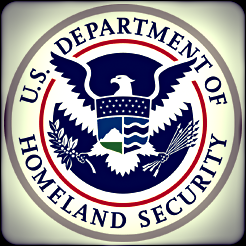The Department of Homeland Security has shown, once again, that it is very good at locking the barn door, not only after the horse has been stolen, but long after the stolen horse has died of old age. In short, it occasionally takes appropriate action, but years — even decades — too late.
The latest example comes from America's far, far West, the Island of Tinian, in the Commonwealth of the Northern Mariana Islands, just north of Guam in the Pacific. That is the location of the Tinian Dynasty Hotel & Casino; the casino has been closed for several months, and the adjacent hotel is operating, but just barely.
DHS is currently defending, in federal court in the Marianas, its decision not to allow foreign temporary workers to be employed by the casino. DHS had ruled that the casino was "not engaged in a legitimate business" and hence was not qualified to employ the foreign workers.

The Commonwealth has only been under U.S. immigration law since 2009; previously it ran its own migration system, which allowed for comparably enormous numbers of nonimmigrant workers who were badly exploited and who were forever barred from securing either green card or citizen status. A remnant of that system still exists, but under DHS supervision; the current system is designed to meet the interests of employers, not those of either the foreign workers or members of the local indigenous labor force.
Back to the casino. It was in trouble when I, then a U.S. Department of the Interior employee working with our island territories, looked in on it 18 years ago. Big and garish, with most of the glitz of its Las Vegas sister institutions, it was virtually empty at the time; it is, after all, on a lightly populated island that is unreachable by direct international flights. (You have to land on nearby Saipan and then take a smallish plane to reach Tinian; when I did so, I sat in the co-pilot's seat with, appropriately, the controls locked in front of me.)
The casino has been in failing economic health for years, largely because of its out-of-the-way location. The casino is owned by Chinese interests, and it was rumored at the time that it had, in fact, been built by the Chinese army. From the first it was thought to function only because of money laundering activities. Ultimately, (in 2013) it settled a money laundering charge with the Justice Department, paying $3 million "as part of a non-prosecution agreement with DOJ", according to the Law360 story cited earlier. Last year, according to the same source, the U.S. Treasury Department levied a $75 million civil penalty on it for violating the Bank Secrecy Act.
Meanwhile, the casino was not paying wages to many of its workers and agreed to a $1.3 million settlement with the U.S. Department of Labor on that score three months ago. One of the reasons that the foreign workers kept working despite the lack of pay days is that they needed a signoff from their employer to stay in legal immigration status — a deplorable situation facilitated by local DHS regulations.
Similarly, the casino was not paying its local taxes, as Radio Australia reported.
Given all this evidence that the casino is an unattractive, lawless enterprise, DHS has finally denied the casino its foreign workers, and has been sued as a consequence. The suit is in the local federal court.
Mainland Examples of Padlocking the Barn Door. The DHS tendency to sometimes do the right thing, but only on a substantially delayed basis, is reflected in at least three different cases here in the continental United States.
In South Dakota, after years of public controversy, a grisly EB-5-connected death, and apparently the loss, theft, and/or waste of scores of millions in EB-5 funds, DHS finally decided late last year to begin the process of perhaps taking away the state government's license for the regional center that had handled things so badly, but that process is still in motion.
Speaking of regional centers, the population of them has swollen to 834, meaning that only a tiny minority of them can make money given the fact that under immigration law there are only 2,500-3,000 EB-5 investments possible each year (at half a million each.) For the full list of the centers see here.
DHS, usually totally oblivious to the negative impacts of the over-population of human beings, has finally taken a step that may control the growth of the number of these centers by substantially increasing the DHS fees for regional center applications from $6,230 to $17,995. The Department has also instituted an annual fee of $3,035 on these centers, an industry bulletin reports. Fees at these levels or higher should have been in place for years; higher fees, hopefully, will lead to more and better management of these entities.
Then there was DHS's extremely belated decision to terminate the visa-creating powers of a little visa mill in the D.C. suburbs. The University of Northern Virginia was raided by ICE, was unable to secure accreditation from the least of the accrediting agencies, the Accrediting Council for Independent Colleges and Universities (ACICS in 2014 approved 418 institutions, while denying four) and then was denied a license to operate by an extremely lenient Virginia state regulatory agency. It was months after the state rejection that DHS finally de-listed UNV, as we reported at the time.
